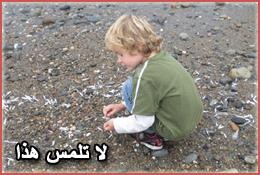-
 hasanaga saysMon 29th Jun 09@03:13 amماشاءالله good job
hasanaga saysMon 29th Jun 09@03:13 amماشاءالله good job -
Salaam alaykum
My name is VALENTINA I am 22 years old and I'm from Romania more exactly from CONSTANTA . I love to learn different languages and I wanted to learn also arabic . It is a beautiful language and with ArabicPod it is also very easy to learn you are the BEST site of all! I made a friend he is from Syria but for 2 years stays in ROMANIA he speaks arabic and also romanian sow I said to my self that I should learn same things abaut his culture and language . I whant to know more !
Sow SHUKRAN for this apportunity I learned sow many things and I really imprest my arabic friend !
-
Hay Valentina,
Welcome to the site. It was great reading your story. Please keep it up!
-
When you use فهمت , does that only take past tense when "I understand" means "Oh, I see now"? Cos isn't the present tense used in other cases (like when saying "I understand Arabic")? If so, are there any other situations where the past tense is used in a present situation (like with فهمت)? Sort of a dumb question, but I was wondering if you guys could clear that up for me. Keep up the great work! I really like this website and your podcasts; they're very well-done and organized :)
-
This very good question .. When the child said (فهمت), he meant (I understood) or if we want to complete the meaning, then he meant (I understood what you said father). To be honest, the confusion is here because of the English response which comes in present tense.
In Arabic, if you use the present tense, then you mean that you are either doing the action now or you always do the action, so if you say (أفهم) which (I understand-present) then you mean that you always understand things, which is not the right response for the father's question. However, if it was a question about understanding a language, then you have to say (أفهم العربية) because you always understand the language.
Hope that is clear. -
very very nice , all your work is great , may allah give his blessings on you
-
You use أنه in the third sentence wich you transliterate with 'ennahu'.
My question: If I used haraqat, would أنه be correct, or أَنَّه corrensponding to the transliteration? -
If you use the harakaat, then إنَّه is the way to do it. If you listen to it carefully you'll hear the stress on the (ن) letter.
-
this is a very interesting lesson as it highlights the difference in cultures by the use of the word Habiibi. In America, such a word seems to be reserved only for the intimacy of lovers, and, being the father of two young children, I can't think of any phrase I would use in addressing my kids to represent any sort of deep love I have for them like 'habiibi'. The word 'darling' used in this context seems to be very alien to the American experience in regards to children too. I can't speek for the English experience, but your English guest seemed a little put out by its use too. I think we're more comfortable refering to our kids in a loving, but rather sarcastic way, like calling them 'half pint' or 'pickle' or 'little squirt' etc. I'm impressed by this divide between American & Arabic culture.
-
BlueTailFly, that might just be an American way of referring to kids. Certainly here in the UK parents/elders refer to their children using terms of endearment! So it's not simply an English/Arabic divide...
Beginner - Don't touch that
| June 26th, 2009 | 1 comment |
There are often times when you need to teach your young loved ones not to touch something. We teach you how to do this in a loving manner in Arabic. There is plenty of useful vocabulary today that will certainly feed your brain's thirst for Arabic so make sure you don't miss this one.
 MP3 Download MP3 Download
|
 PDF Transcript PDF Transcript |
 Audio Transcript Audio Transcript Exercise Exercise |
| Free | Basic | Premium |
|---|
Join the Discussion

Like this on facebook!

Random Word
سرعة |
|

Advertisement

